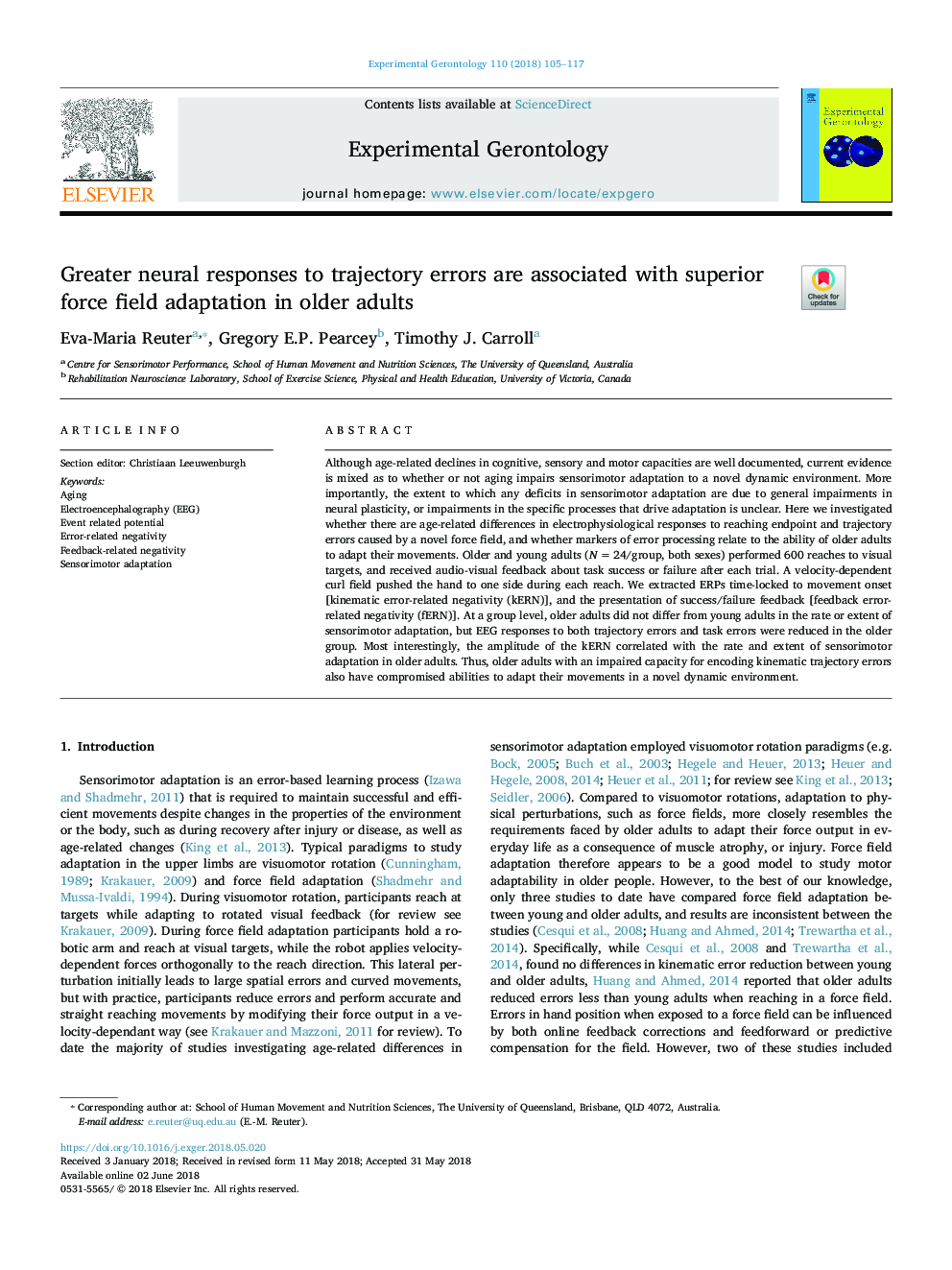| Article ID | Journal | Published Year | Pages | File Type |
|---|---|---|---|---|
| 8262142 | Experimental Gerontology | 2018 | 13 Pages |
Abstract
Although age-related declines in cognitive, sensory and motor capacities are well documented, current evidence is mixed as to whether or not aging impairs sensorimotor adaptation to a novel dynamic environment. More importantly, the extent to which any deficits in sensorimotor adaptation are due to general impairments in neural plasticity, or impairments in the specific processes that drive adaptation is unclear. Here we investigated whether there are age-related differences in electrophysiological responses to reaching endpoint and trajectory errors caused by a novel force field, and whether markers of error processing relate to the ability of older adults to adapt their movements. Older and young adults (Nâ¯=â¯24/group, both sexes) performed 600 reaches to visual targets, and received audio-visual feedback about task success or failure after each trial. A velocity-dependent curl field pushed the hand to one side during each reach. We extracted ERPs time-locked to movement onset [kinematic error-related negativity (kERN)], and the presentation of success/failure feedback [feedback error-related negativity (fERN)]. At a group level, older adults did not differ from young adults in the rate or extent of sensorimotor adaptation, but EEG responses to both trajectory errors and task errors were reduced in the older group. Most interestingly, the amplitude of the kERN correlated with the rate and extent of sensorimotor adaptation in older adults. Thus, older adults with an impaired capacity for encoding kinematic trajectory errors also have compromised abilities to adapt their movements in a novel dynamic environment.
Keywords
Related Topics
Life Sciences
Biochemistry, Genetics and Molecular Biology
Ageing
Authors
Eva-Maria Reuter, Gregory E.P. Pearcey, Timothy J. Carroll,
